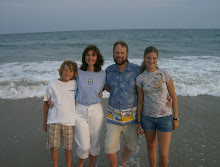In reviewing my post from July 31 on Treasure Hunting, I noticed that I left out a significant category of treasure hunter. If you visited Crater of Diamonds State Park you will notice mini-monuments erected around the field to great diamond finds. For example, as you enter the field almost immediately to your right you will notice a shovel mounted upright in a slab of concrete with a sign above it declaring that the "Uncle Sam" diamond was found on that spot in 1924 and a brief history of the discovery. I was amazed at how many people would walk by this sign give it a read and then begin digging around the spot immediately. Something in there head said, "Wow this must be a great spot." What they failed to slow down and think about was that for 84 years people have been picking over that same spot just like them.
What's this look like in the church? Some churches will say, "Hey, the Baptist Church added a gymnasium and they grew leaps and bounds." or "The Methodist Church is doing contemporary worship and they are busting out the seams." Then those churches will try to hop on that band wagon of success. If they adopt in early enough that may actually work. Frequently though, the church that took the first leap was responsive to a need that may or may not exist any longer. Or, it's meeting the need and there is not a need for other providers. I initially called these treasure hunters "coat-tailers." I think though that "wave riders" is a better term. They are trying to catch the wave of success, the only problem is waves have a life span. Eventually, a wave makes it to the beach and peters out. Wave riding can work if you catch the wave early enough, but it won't last forever.
Imitation of other people can be a valuable spiritual growth tool if we do it mindfully. Paul encouraged people to imitate his example. (2 Timothy 3:10-15.) The key is imitating the application of timeless principles rather than temporary trends. For example, building a gym in order to offer a basketball program may not be a valuable move if that need is already met in your community. On the other hand, recognizing an authentic need in the community and being responsive to it is a timeless principle.
Wednesday, August 6, 2008
Subscribe to:
Post Comments (Atom)

No comments:
Post a Comment